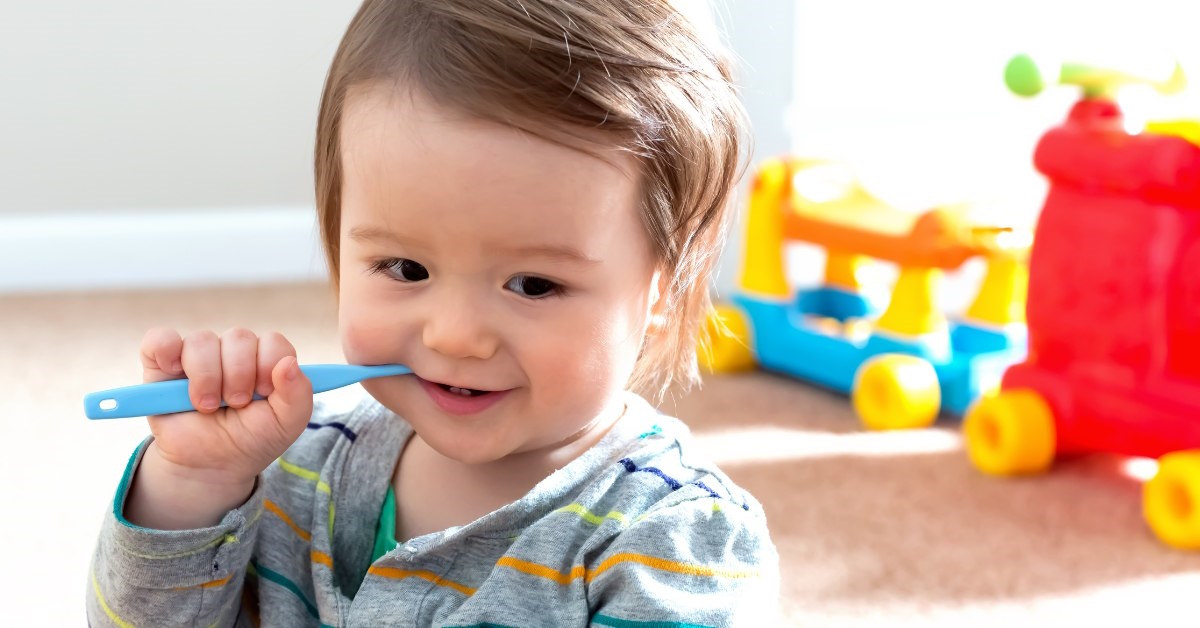
Whereas breastfeeding typically has many advantages, an growing variety of analysis research additionally discover advantages associated explicitly to extended or prolonged breastfeeding, each for the newborn and the mother. There are additionally just a few dangers, however nowhere close to as many or as vital because the optimistic results.
Right here, we dig into what science says in regards to the professionals and cons of prolonged breastfeeding.

The Definition of “Prolonged”
When you haven’t heard or thought a lot in regards to the time period “prolonged breastfeeding” earlier than, chances are you’ll marvel what we are literally speaking about. Prolonged how? And past what?
These are good and related questions; the reply will depend on who you ask. In the US and plenty of different Western international locations immediately, it’s thought-about regular and an awesome factor if a mother breastfeeds her child for as much as one 12 months of age after which wean the child. After that, it begins to slowly change into extra controversial, and the mother can be stated to be doing prolonged breastfeeding.
In lots of different components of the world, breastfeeding a one-year-old or older youngster is just to breastfeed—no want for fancy phrases. Breastfeeding in some components of the world continues till a toddler is 2, 3, or typically 4 years of age.
Merely put, prolonged breastfeeding means breastfeeding a toddler (i.e., older than one 12 months).
One can, in fact, query why anybody outdoors a child’s rapid household would care in any respect for a way lengthy a child is breastfed. It’s not just like the mother is feeding her child wine – breast milk is very healthy; at the very least, that ought to be one thing we will all agree on!
Nonetheless, discussing this cultural stigma is just not the article’s objective (even whether it is undoubtedly essential). As a substitute, I need to share with you the advantages of prolonged breastfeeding, in addition to the dangers (sure, they do exist).
A rising physique of analysis is discovering new well being advantages of breastfeeding past the primary 12 months of life. Thrilling, certainly! (Yow will discover hyperlinks to all of the analysis research under the article.)
Prolonged Breastfeeding Advantages For The Baby

Vitamin
Breastmilk comprises protein, fats, and different nutritionally important components regardless of how lengthy you breastfeed or how previous your youngster is. Due to this fact, it’s not true that breastmilk loses its dietary high quality after a sure interval of breastfeeding. Past the primary 12 months, it could possibly nonetheless present a good portion of a kid’s each day necessities for a lot of important vitamins, comparable to nutritional vitamins A and B12.
In a single longitudinal research that centered on the composition of human milk within the second 12 months postpartum, members who had been nonetheless breastfeeding or expressing milk at the very least three to 4 instances a day offered milk samples from 11 to 17 months postpartum. The outcomes confirmed that concentrations of whole protein, lactoferrin, lysozyme, IgA, sodium, and oligosaccharides elevated over time whereas zinc and calcium concentrations decreased. There was no noticed change in lactose focus.
General, the research’s findings recommend that the macronutrient worth of human milk is steady or growing through the second 12 months postpartum.
Boosted Immunity
Breast milk has many properties that shield in opposition to sure infections. For instance, the milk comprises antibodies to microbes the mother has been uncovered to, antibacterial and antiviral brokers like lactoferrin, lysozyme, and fatty acids.
Additionally, breastfed infants have extra wholesome intestine micro organism than formula-fed infants.
In keeping with analysis, infants that proceed to breastfeed past one 12 months appear to learn from these immune-boosting properties at the very least till 18 months of age, as breastfed infants have fewer infections and colds than infants who don’t breastfeed or are utterly weaned earlier.
In keeping with some sources, some immune components present in breastmilk that shield the newborn in opposition to infections are current in larger quantities within the youngster’s second 12 months of life than within the first.
Safety in opposition to Crohn’s illness and Ulcerative colitis
Research point out a sharply lowered threat (80% decrease) of Crohn’s illness and ulcerative colitis when breastfeeding for 12 months or extra in comparison with solely breastfeeding for 3-6 months.
Decreased threat of Kind 1 Diabetes
Kind 1 Diabetes threat might lower by as a lot as 50% if breastfeeding for at the very least 12 months in comparison with not breastfeeding in any respect.
Improved Cognitive Growth
Prolonged breastfeeding has been linked to improved cognitive outcomes, presumably because of the presence of particular fatty acids in breast milk which might be important for mind growth. A Brazilian research of just about 4,000 youngsters discovered that infants who breastfed for 12 months or extra had greater IQ scores, an extended training, and better month-to-month incomes at 30 years of age than those that breastfed for lower than one month.
Decreased threat of misaligned enamel
The pure sucking motion required throughout breastfeeding might promote a scale back the danger of malocclusions (misaligned enamel). This contrasts bottle feeding, which might typically result in dental points if sure habits, like extended bottle use, are continued past infancy. The identical goes for pacifier use.
A number of research have concluded this hyperlink between breastfeeding and enamel alignment. A research from 2018 checked out prolonged breastfeeding and located that breastfeeding for 12 months or longer was related to decrease odds of overjet, open chew, and posterior crossbite.
Emotional and Psychological Advantages
Breastfeeding is usually a supply of consolation and safety for toddlers. The closeness and bodily contact throughout breastfeeding can assist toddlers navigate anxious occasions and foster a stronger emotional connection between the mom and youngster. Some research additionally point out a optimistic correlation between breastfeeding period and the bond between the mom and youngster that’s nonetheless measurable when the kid has change into a young person.
Advantages for the Mother

Breastfeeding lowers the dangers and protects the mom from sure illnesses, each whereas breastfeeding and typically in a longer-term perspective.
Breast Most cancers Discount
Extended and prolonged breastfeeding is related to a lowered threat of breast most cancers. In keeping with the collaborative reanalysis research, for each 12 months of breastfeeding (both with a single youngster or mixed throughout a number of youngsters), the danger of breast most cancers is lowered by about 4.3%. This can be resulting from breast tissue adjustments or decreased lifetime publicity to sure hormones associated to most cancers. One other research discovered a 26% decrease threat of breast most cancers amongst mothers who breastfed for at the very least 12 months than those that didn’t breastfeed.
Ovarian Most cancers Discount
The precise mechanism isn’t absolutely understood, but it surely’s believed that the lowered ovulation that always happens with extended breastfeeding might be an element. Much less ovulation means fewer possibilities for cell mutation through the egg-releasing course of, which could contribute to lowered most cancers threat. One research discovered that breastfeeding >12 months is related to a 37% lowered threat of ovarian most cancers.
Decreased Danger of Diabetes mellitus
Prolonged breastfeeding might scale back the danger of diabetes mellitus (sort 2) by as a lot as 30% in comparison with breastfeeding for a shorter interval.
Rameez RM, Sadana D ,Kaur S, et al. Affiliation of maternal lactation with diabetes and hypertension: a scientific assessment and meta-analysis JAMA Netw Open 2019;2(10):e1913401
Decreased threat of Hypertension
Hypertension threat (i.e., the danger of hypertension) can be lowered by breastfeeding for greater than 12 months. The chance then falls by 12-13%.
Decrease threat of rheumatoid arthritis
Yet one more potential good thing about prolonged breastfeeding pertains to rheumatoid arthritis (RA). Analysis has proven that ladies who breastfed their youngsters had been round half as prone to have RA in comparison with those that have by no means breastfed. Moreover, the danger of RA decreased with growing breastfeeding period. That is consistent with an earlier Swedish research that discovered ladies who breastfed for at the very least 13 months to have a 50% decrease threat of RA than those that didn’t breastfeed.
Decreased threat of heart problems
Ladies who breastfeed for 12 months or longer throughout life appear to be much less prone to develop heart problems than those that don’t breastfeed.
Cognitive advantages after the age of fifty
A current research discovered that discovered that longer time spent breastfeeding is related to higher cognitive efficiency later in life. Taking into consideration on a regular basis the ladies had spent breastfeeding in life, they discovered that those that had not breastfed in any respect scored considerably decrease in three out of 4 examined cognitive areas (studying, delayed recall, government functioning, and processing pace) in comparison with ladies who had breastfed for 1-12 months. The outcomes had been even stronger when evaluating no breastfeeding with prolonged breastfeeding; these not breastfeeding had decrease scores in all 4 examined areas on this case. General, ladies who had breastfed the longest had the best cognitive take a look at scores.
Emotional Well being
The shut bond fashioned throughout breastfeeding can launch hormones like oxytocin, which promote maternal emotions of affection and attachment. Moreover, breastfeeding may scale back the danger of postpartum melancholy, additionally throughout extended intervals, though the connection is advanced, and different components additionally play a task.
Extra tuned in Parenting
There are additionally research that present that the longer a mother breastfeeds, the extra in tune along with her child’s wants she turns into, above and past household and maternal background traits. Moreover, the advantages of breastfeeding on maternal sensitivity lengthen past simply the toddler or toddler years. Mothers who breastfeed for prolonged intervals appear to naturally change into extra attuned to their youngster’s wants, implying that breastfeeding may provoke a collection of advantageous results on her parenting behaviors.
Drawbacks and Dangers for the Baby

Prolonged breastfeeding, whereas providing many advantages, additionally has some potential dangers and drawbacks. In an earlier model of its place assertion, the American Academy of Pediatrics (AAP) acknowledged that “there isn’t any proof that breastfeeding into the third 12 months of life or longer results in psychological or developmental hurt for the newborn.” Within the revised place paper, this sentence is just not included, however AAP nonetheless helps prolonged breastfeeding as much as 2 years of age and primarily emphasizes the optimistic associated well being results for the breastfeeding mother. Whereas the confirmed advantages of prolonged breastfeeding are substantial and ample, there are just a few damaging points to think about for each the toddler and the mother.
Dietary Imbalances
If breast milk stays the first supply of vitamin properly into toddlerhood with out ample complementary meals, there’s a possible threat for dietary imbalances. Youngsters might miss out on iron, zinc, and different important vitamins. You will need to observe that prolonged breastfeeding doesn’t imply {that a} toddler ought to be completely or predominately breastfed, as this may increasingly trigger deficiencies. Unique breastfeeding is advisable for the primary six months, after which a toddler ought to be steadily launched to quite a lot of nutritious meals to get sufficient of all of the vitamins their physique wants to realize optimum well being and development.
In case your toddler is consuming nutritious, wholesome, and balanced meals, together with iron-rich foods, alongside breastfeeding, extended breastfeeding received’t enhance the chance of iron deficiency.
Dental Caries
Dental caries (tooth decay) are potential if a toddler ceaselessly breastfeeds at evening after tooth eruption, particularly with out dental hygiene practices. It’s important to keep up oral hygiene in breastfed toddlers.
Drawbacks and Dangers for the Mom

Breast Well being
Whereas breastfeeding, there may be an elevated threat of creating mastitis, breast abscesses, or different infections if there are latch points or the breast isn’t emptied often. This threat is extra pronounced firstly of breastfeeding however continues till the newborn is absolutely weaned.
Bone Well being short- and long-term
Whereas lactating, there’s a short lived lower in bone mineral density within the mom. The density often rebounds after weaning, however the interim decline can concern some ladies, particularly these in danger for osteoporosis. As well as, comparatively new analysis has discovered a damaging correlation between the period of breastfeeding and bone density after menopause. Prolonged breastfeeding might thus enhance the danger of osteoporosis each in a short-term and long-term perspective.
Fertility and Contraception
Prolonged breastfeeding can delay the return of fertility, which is likely to be an obstacle for moms eager to conceive once more. It additionally makes pure household planning strategies much less predictable. It ought to, nonetheless, be famous that though breastfeeding might influence fertility, it’s a delusion that it’s not possible to get pregnant whereas breastfeeding. A number of components, comparable to maternal age and the period and frequency of breastfeeding, affect the return of the interval after supply.
Modifications in breastfeeding patterns usually end in interval return. Due to this fact, for a lot of ladies, the power to get pregnant once more returns after they not breastfeed completely or when their child begins to sleep longer through the evening.
As soon as the newborn begins consuming strong meals, the frequency of breastfeeding and the milk provide will probably lower, growing fertility hormones and the chance of ovulation and being pregnant. Some moms will discover that their interval returned when their infants began sleeping longer stretches at evening. In these circumstances, even that small change in breastfeeding frequency was sufficient to cut back the impact of breastfeeding on estrogen ranges.
Nonetheless, as talked about, it’s laborious to say precisely when the interval will return as that is very totally different for each lady.
Bodily and Emotional Toll
Prolonged breastfeeding will be bodily demanding. Moms might expertise fatigue, significantly if nighttime feedings proceed. There’s additionally the emotional side: societal strain, criticism, or the necessity for private area can affect a mom’s emotions.
Social Stigma and Public Criticism
Public criticism could be a problem moms face when deciding that prolonged nursing is correct for his or her youngsters and themselves. You might obtain odd seems, impolite feedback, and even outright criticism from members of the family, pals, and full strangers who consider early weaning is finest for a kid. This may be powerful to deal with and end in emotions of isolation and being judged.
All this stated, breastfeeding will at all times be a private selection.
So, how lengthy must you breastfeed?
There are circumstances the place toddler components firms and even some medical doctors have inspired moms to cease breastfeeding at six months to a 12 months, telling them breastfeeding previous this level has no actual advantages in your youngster. As seen on this article, they’re fallacious.
The American Academy of Pediatrics recommends unique breastfeeding for the primary six months and continued breastfeeding till the newborn is at the very least a 12 months previous with the addition of nutritious complementary meals. Additionally they emphasize continued advantages from breastfeeding for the mom when breastfeeding goes past one 12 months and as much as two years.
World Well being Group (WHO) additionally recommends unique breastfeeding for the primary six months of life. After six months, strong meals ought to be launched, however breastfeeding ought to proceed for the subsequent two years and past.
All this stated, breastfeeding will at all times be a private selection. Many advantages are achieved by breastfeeding for round 4 months.
Takeaway
Breastfeeding has many vital advantages for each the newborn and mother and in lots of circumstances, these advantages begin kicking in instantly or after just a few months of breastfeeding. As well as, analysis has discovered a number of advantages primarily associated to an extended period of breastfeeding, which has been the main target of this text. Some identified advantages, comparable to maternal weight reduction or a reduced risk of sudden infant death syndrome (SIDS) for the newborn, are subsequently not talked about. These advantages don’t require prolonged breastfeeding.
Prolonged breastfeeding additionally comes with some dangers and drawbacks. These are essential to grasp and mitigate.
The principle professionals and cons of prolonged breastfeeding relate to lowered dangers of a number of diseases for each child and mother, whereas on the identical time resulting in a threat of enamel misalignment for the kid and bone density loss for the mother.
Mothers, what are your views or experiences of breastfeeding a toddler? Do you do it? Why, why not? Let’s share our experiences, however no judgements, please!
Learn Subsequent
Analysis references
- Tucker Z, O’Malley C. Mental Health Benefits of Breastfeeding: A Literature Review. Cureus. 2022 Sep 15;14(9):e29199. doi: 10.7759/cureus.29199. PMID: 36258949; PMCID: PMC9572809.
- Victora CG, Horta BL, Loret de Mola C, et al. Affiliation between breastfeeding and intelligence, instructional attainment, and earnings at 30 years of age: a potential beginning cohort research from Brazil. The Lancet International Well being. 2015;3(4):e199-e205.
- Frank, N.M., Lynch, Ok.F., Uusitalo, U. et al. The relationship between breastfeeding and reported respiratory and gastrointestinal infection rates in young children. BMC Pediatr 19, 339 (2019). https://doi.org/10.1186/s12887-019-1693-2
- Duijts L, Jaddoe VWV, Hofman A, Moll HA. Prolonged and Exclusive Breastfeeding Reduces the Risk of Infectious Diseases in Infancy. Pediatrics. 2010;126(1):e18-e25.
- Thomaz EBAF, Alves CMC, Gomes E Silva LF, Ribeiro de Almeida CCC, Soares de Britto E Alves MTS, Hilgert JB, Wendland EM. Breastfeeding Versus Bottle Feeding on Malocclusion in Children: A Meta-Analysis Study. J Hum Lact. 2018 Nov;34(4):768-788. doi: 10.1177/0890334418755689. Epub 2018 Mar 29. PMID: 29596751.
- Fergusson DM, Woodward LJ. Breastfeeding and later psychosocial adjustment. Paediatr Perinat Epidemiol. 1999 Apr;13(2):144-57. doi: 10.1046/j.1365-3016.1999.00167.x. PMID: 10214606.
- Katja Linde, Franziska Lehnig, Michaela Nagl, Anette Kersting, The association between breastfeeding and attachment: A systematic review, Midwifery, Quantity 81, 2020, 102592, ISSN 0266-6138,
- Oxford College Press (OUP). “Breastfeeding associated with lower risk of rheumatoid arthritis, according to new study.” ScienceDaily. ScienceDaily, 7 January 2014.
- Lena Tschiderer, Lisa Seekircher, Setor Ok. Kunutsor, Sanne A. E. Peters, Linda M. O’Keeffe, Peter Willeit. Breastfeeding Is Associated With a Reduced Maternal Cardiovascular Risk: Systematic Review and Meta‐Analysis Involving Data From 8 Studies and 1 192 700 Parous Women. Journal of the American Coronary heart Affiliation, 2022; DOI: 10.1161/JAHA.121.022746
- Molly Fox, Prabha Siddarth, Hanadi Ajam Oughli, Sarah A Nguyen, Michaela M Milillo, Yesenia Aguilar, Linda Ercoli, Helen Lavretsky, Women who breastfeed exhibit cognitive benefits after age 50, Evolution, Medication, and Public Well being, Quantity 9, Challenge 1, 2021, Pages 322–331,
- Joan Youthful Meek, Lawrence Noble, Section on Breastfeeding; Policy Statement: Breastfeeding and the Use of Human Milk. Pediatrics July 2022; 150 (1): e2022057988. 10.1542/peds.2022-057988
- Dewey KG. The problem of assembly nutrient wants of infants and younger youngsters through the interval of complementary feeding: an evolutionary perspective. Journal of Vitamin. 2013;143(12):2050-2054.
- A.E. Burton, J. Taylor, A.L. Owen, J.E. Renshaw, L.R. Williams, S.E. Dean, A photo-elicitation exploration of UK mothers’ experiences of extended breastfeeding, Urge for food, Quantity 169, 2022, 105814, ISSN 0195-6663, https://doi.org/10.1016/j.appet.2021.105814.
- Brown A, Rance J, Bennett P. Understanding the connection between breastfeeding and postnatal melancholy: the position of ache and bodily difficulties. Journal of Superior Nursing. 2016;72(2):273-282.
- Abanto J, Maruyama JM, Pinheiro E, Matijasevich A, Antunes JLF, Bönecker M, Cardoso MA; MINA-Brazil Examine Group. Prolonged breastfeeding, sugar consumption, and dental caries at 2 years of age: A birth cohort study. Neighborhood Dent Oral Epidemiol. 2023 Jun;51(3):575-582. doi: 10.1111/cdoe.12813. Epub 2022 Nov 15. PMID: 36380436.
- Amir LH, Forster DA, McLachlan H, Lumley J. Incidence of breast abscess in lactating ladies: report from an Australian cohort. BJOG: An Worldwide Journal of Obstetrics & Gynaecology. 2004;111(12):1378-1381.
- Riordan JM, Nichols FH. A descriptive research of lactation mastitis in long-term breastfeeding ladies. J Hum Lact. 1990 Jun;6(2):53-8. doi: 10.1177/089033449000600213. PMID: 2346600.
- Hwang, I.R., Choi, Y.Ok., Lee, W.Ok. et al. Association between prolonged breastfeeding and bone mineral density and osteoporosis in postmenopausal women: KNHANES 2010-2011. Osteoporos Int 27, 257–265 (2016). https://doi.org/10.1007/s00198-015-3292-x
- Faircloth CR. “In the event that they need to threat the well being and well-being of their youngster, that’s as much as them”: Lengthy-term breastfeeding, threat, and maternal identification. Well being, Danger & Society. 2013;15(6-7):580-597.

Paula Dennholt based Straightforward Child Life in 2006 and has been a passionate parenting and being pregnant author since then. Her parenting strategy and writing are based mostly on research in cognitive-behavioral fashions and remedy for kids and her expertise as a mom and stepmother. Life as a guardian has satisfied her of how essential it’s to place relationships earlier than guidelines. She strongly believes in optimistic parenting and a science-based strategy.
Paula cooperates with a team of pediatricians who help in reviewing and writing articles.
Trending Merchandise











